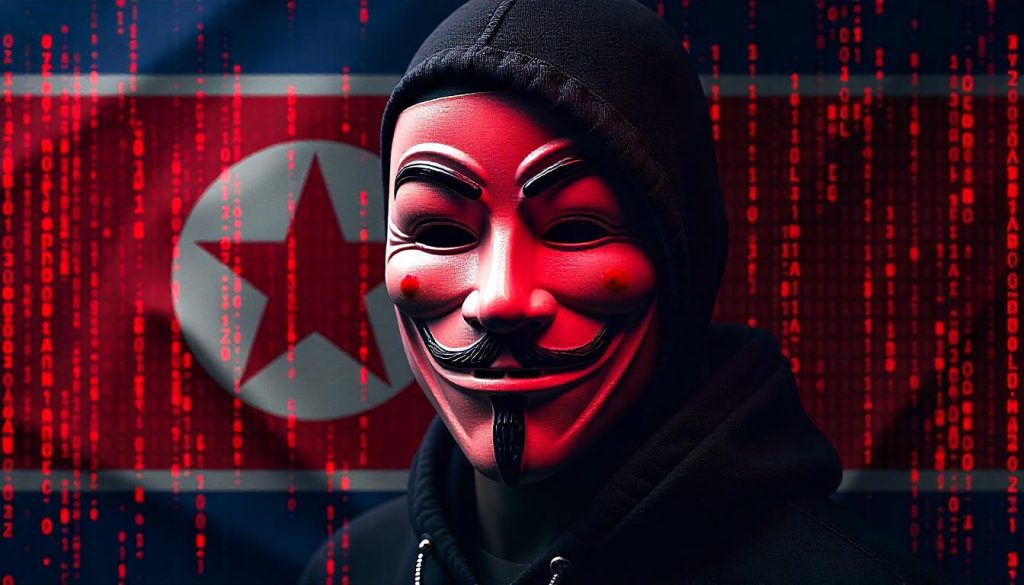When you hear the words “Operation Free Korea,” it might sound like a military mission or something out of a spy movie. But it’s not about armies or weapons. It’s about hackers, activism, and a fight for freedom of information in one of the world’s most secretive countries—North Korea.

Led by the hacktivist collective Anonymous, Operation Free Korea was an effort to challenge the censorship and control imposed by the North Korean regime. This wasn’t about attacking people. It was about giving them access to the truth—something most North Koreans are denied. Let’s break it all down in simple terms.
A Look at North Korea’s Internet Reality
Before diving into Operation Free Korea, it helps to understand what life is like online in North Korea—spoiler: it’s nothing like what you’re used to. Most North Koreans don’t even have access to the real internet. Instead, they use a state-controlled intranet called Kwangmyong, where they can only access government-approved content. There’s no Facebook, no YouTube, no Google—no real connection to the outside world. Every piece of news is filtered and twisted to support the regime’s narrative. Freedom of speech? That doesn’t exist. Speaking against the government can land you in prison—or worse. It’s a country where information is a luxury, not a right.
So, What is Operation Free Korea?
Operation Free Korea was a cyber campaign launched in April 2013 by Anonymous. The mission? Disrupt the North Korean regime’s propaganda tools, expose sensitive government data, and empower the citizens by encouraging access to real information. Anonymous had a bold message: “We are watching. We want freedom for the North Korean people.”
Here’s what the operation focused on:
-
Hacking North Korean websites.
-
Leaking data from government systems.
-
Urging North Koreans and insiders to rise up.
-
Encouraging more defections and spreading awareness globally.
It wasn’t just about embarrassing the regime. It was a digital protest against censorship and dictatorship.
What Did Anonymous Actually Do?
Here are the major actions taken under Operation Free Korea:
1. Website Defacements
Anonymous successfully took down or defaced several North Korean websites, including the country’s official propaganda site and social media accounts (like their state Twitter and Flickr pages). The messages they left called out Kim Jong-un’s leadership and demanded democratic reforms.
2. Data Leaks
The hackers claimed to have leaked usernames, passwords, and email addresses of North Korean government officials and sympathizers. This information came from servers they allegedly breached inside and outside the country. While North Korea’s internet infrastructure is limited, they do maintain a handful of outward-facing services—and Anonymous made sure the world saw how vulnerable they were.
3. Call to the People
Perhaps the most powerful part of the campaign was its emotional appeal to the North Korean people. Anonymous published a message addressed directly to citizens, urging them to rise against oppression, seek truth, and reclaim their freedom.
They said:
“We are Anonymous. We are Legion. We do not forgive. We do not forget. Expect us.”
It wasn’t just about tech. It was about hope.
Was Operation Free Korea Successful?
That depends on how you define success. If the goal was to crumble the North Korean regime, then no—it didn’t accomplish that. North Korea is still tightly controlled, and internet access is still restricted.
But if the goal was to:
-
Embarrass the government publicly,
-
Show the regime’s vulnerabilities,
-
Inspire global conversations about freedom and oppression,
Then yes—Operation Free Korea made a real impact. It showed that even the most isolated regimes aren’t safe from the reach of the internet. It also reminded the world that there are people who will fight—not with guns, but with keyboards—for those who can’t fight for themselves.
The Ethics: Was This the Right Way?
Not everyone agrees with Anonymous’ methods. Hacking, even for a good cause, is still illegal in most countries. And publishing personal data, even from officials, raises serious ethical questions. But Anonymous operates outside traditional systems. They believe that when governments fail to protect human rights, it’s up to the people—even the anonymous ones—to take a stand.
Was it risky? Yes.
Was it dangerous? Absolutely.
But was it well-intentioned? Many would say yes.
This operation was less about cybercrime and more about cyber-resistance.
Why Operation Free Korea Still Matters
Even though Operation Free Korea happened more than a decade ago, its message still rings true.
1. Information is Power
When people are kept in the dark, they can’t make informed choices. Anonymous knew that. Their goal was to bring light to the most closed society in the world.
2. Hacktivism Has Influence
This operation proved that digital protest is real protest. Anonymous didn’t have weapons, but they had skills—and those skills sent shockwaves through global media.
3. North Korea is Still Suffering
Despite global efforts, North Koreans remain isolated. The fight for their freedom isn’t over. And as long as regimes control information, activists like Anonymous will keep fighting back.
Final Thoughts: A Battle for the Truth
Operation Free Korea wasn’t about fame, power, or money. It was about truth—something so simple, yet so powerful. In a world where information is often manipulated, censored, or hidden, the truth becomes a revolutionary act. Anonymous didn’t just attack servers; they challenged a regime. They told the North Korean government: “We see you.” And more importantly, they told the people of North Korea: “You’re not alone.” Whether you support their methods or not, it’s hard to deny the heart behind Operation Free Korea. It was a digital cry for human rights in a place where voices are silenced.